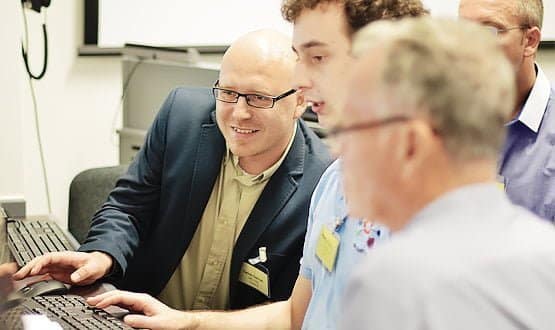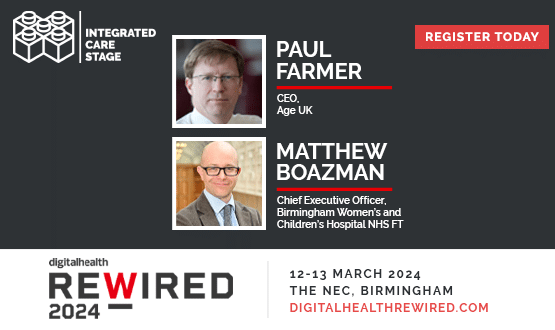Data, data everywhere
- 15 September 2014

Healthcare business intelligence is not a topic that gets everybody hot under the collar, but those at the Farr Institute in London last week were certainly feeling the heat.
While a faulty air conditioner was partly to blame, the real reason for the rising mercury was the frantic coding and clinical analysis of those taking part in a unique healthcare data challenge.
Five teams of clinicians, data analysts and informatics experts went to work on 180m rows of linked primary care and hospital data – covering a two-year period, 1.2m patients, and more than a third of London – as part of the challenge, hosted by the Waltham Forest, East London and City integrated care collaborative.
The collaborative is one of 14 areas chosen by the Department of Health as “integrated care pioneers”, tasked with integrating health and social care, and in passing exploring innovations that include shared care records and other uses of technology.
De-duping the system
The collaborative brings together Newham, Tower Hamlets and Waltham Forest councils and clinical commissioning groups, Barts Health NHS Trust, North East London NHS Foundation Trust and East London NHS Foundation Trust, and the UCL Partners academic health science network.
Bethan George, deputy director for integrated care at Tower Hamlets CCG and programme manager for the collaborative, says the emphasis on joined up care is not new to the three boroughs.
“All of them have had some kind of integrated care in place, whether it’s telehealth pilots in Newham or virtual ward work.”
George says the boroughs started to develop a joint integrated care programme in September 2012, with a team spending six months putting together a case for change and assessing what systems and programmes were already in place.
The collaborative’s focus is on evidence-based and cost-effective care, avoiding duplication by coordinating care and providing a single point of contact for patients.
Another key priority is developing its risk stratification tools to identify high-risk patients and make interventions, because of the significant costs and problems associated with their care.
“The top 20% of patients in terms of risk for hospital admission drive 80% of the costs across the health and social care system,” George says. “They also have a pretty poor experience of care because it’s siloed and they have to organise things for themselves a lot.”
Shared records and analytics
IT systems that will enable information sharing and data analysis are a crucial part of the programme. All three boroughs are working on developing an integrated care record to share information between primary, secondary and social care.
However, the plans are different in each of the three boroughs. Tower Hamlets is working with Orion Health on a shared care record, Waltham Forest has a long-established relationship with Health Analytics, and Newham is still undecided on which supplier it will use.
George says the programme team has been content to let the boroughs develop their own solutions, but may consider integrating the systems in future, so that acute trusts and other area-wide organisations don’t have to feed their information into separate records.
The work on shared care records has also been kept separate from the business intelligence aspect of integration – the main focus of the data challenge.
“We’re conscious that we’re sitting on a massive amount of data that can be joined up in a way that a lot of people are aspiring to join it up,” George explains.
“In bringing all these people together, we want to build different skill sets. They can learn from each other – we can pull out the data and get people playing with it to make sense of it.”
Getting the data together
Pulling together the data for the event was a significant challenge in itself. Ryan Meikle, head of technology and delivery for the North East London Commissioning Support Unit – which processed, linked and provided the data used – says its “vast and rich” data warehouse helped it to restructure the information and make it easier to analyse.
“If you look at what’s sitting behind the data, 100m lines of information; and if you go into that you can become overwhelmed. By being able to package it up into clinical codes that people can understand, it gives them an easier way to pull outcomes out of the data.”
The data was then placed into Aridhia’s cloud-based AnalytxAgility platform, which was used as a ‘safe haven’.
George says information governance has been a “big challenge” for the collaborative, with significant work done on risk stratification and bringing together health and social care data sets.
“I think there are still some problems with IG, but some of those issues will be resolved by the work that’s going on at a national level.”
Opening up the reality of information
Tower Hamlets GP Kambiz Boomla, a clinical lead for the Queen Mary University of London’s clinical effectiveness group, was among those happy to share their data and take part in the challenge.
His team explored whether an investment in a diabetes programme in Tower Hamlets had led to a reduction in emergency admissions for heart disease and chronic obstructive pulmonary disease, in comparison with Newham and Waltham Forest.
“We couldn’t answer that from hospital data at the moment, and we couldn’t answer it from just the GP data.”
UCL Partners is interested in putting this data together for research, strengthening the relationship between researchers and NHS care providers in the process.
Dr Phil Koczan, the chief clinical information officer for the academic health science centre, sees the role of technology in integrated care as helping clinicians to understand what data needs to be captured at source to support care.
At the same time, he sees it bridging the gap between the clinical coding used by GPs and other clinicians and the more stringent requirements of research.
“As a GP, I’m quite happy writing a few lines of free text. That’s useful when someone can read it, but when they can’t, that becomes a problem. It can feel as if they’re two completely separate environments, and we need to bring them together with better quality interfaces.”
More questions than answers
Koczan agrees with George that events like the data challenge are as valuable for bringing different professions together as they are about the analysis that is performed on the day.
“This is about getting people to understand each other’s perspectives. We can give clinicians a better understanding of the analytics required; that it’s not just thrown in a big black box and then the answers come out.”
Dr Catherine Kelly, the director of informatics for UCL Partners, says the event will also help to dispel the “taboos” about how data can be used and analysed. “It’s too easy, sometimes, to say you can’t do things, as opposed to saying ‘Why can’t you?’, and this helps with that.”
Presenting their findings and thoughts for future work, every group stated their desire to spend more time digging down into the data to develop their hypotheses further.
George says the collaborative has already started talking about holding another data challenge, building on the themes from the first event and focussing on particular areas of interest.




